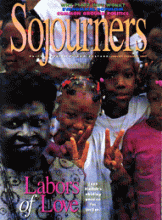There is a time when the operation of the machine becomes so odious, makes you so sick at heart, that you can't take part. You can't even passively take part....
In December 1964, after three months of student resistance to the curtailing of political activity on the Berkeley campus, Mario Savio climbed atop a police car and shouted the words that became a preamble to the 1960s' student movement.
Savio's whole life had prepared him for that pivotal moment. He grew up in Queens, New York, in a strong Italian Catholic family; attended Catholic schools; considered becoming a priest. He trained with the Student Nonviolent Coordinating Committee in Mississippi, saying, "I became involved in the Civil Rights movement because of the one moral principle foundational to my Catholic upbringing: Resist evil."
In 1964, Clark Kerr, president of the University of California, described the university as a "factory" for filling students' empty minds. Savio, son of a machine punch operator, responded by putting his body "upon the gears" and stopping the machine. He was arrested and served 120 days in jail, with students ranging from Democratic Socialists to Goldwater Republicans. In the end they secured their rights to free speech and political activity; they went from being children of the "factory" to citizens of the nation.
Savio was a leader, a movement friend said, "not because of anger or eloquence but because he spoke with an indelible moral clarity that was rooted in his Catholic faith."
Research for this article contributed by Sandy Maben.
Read the Full Article
